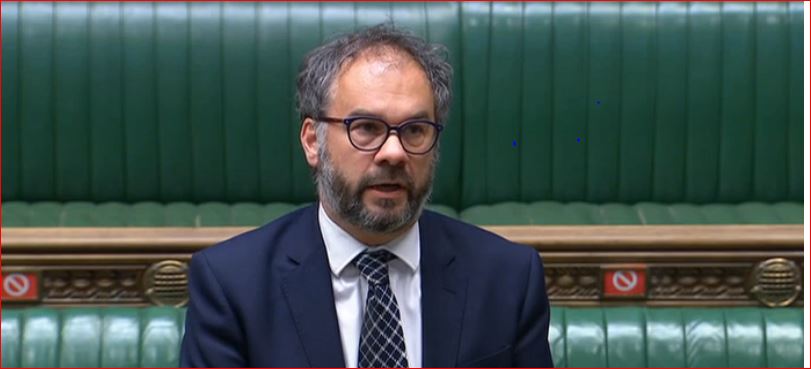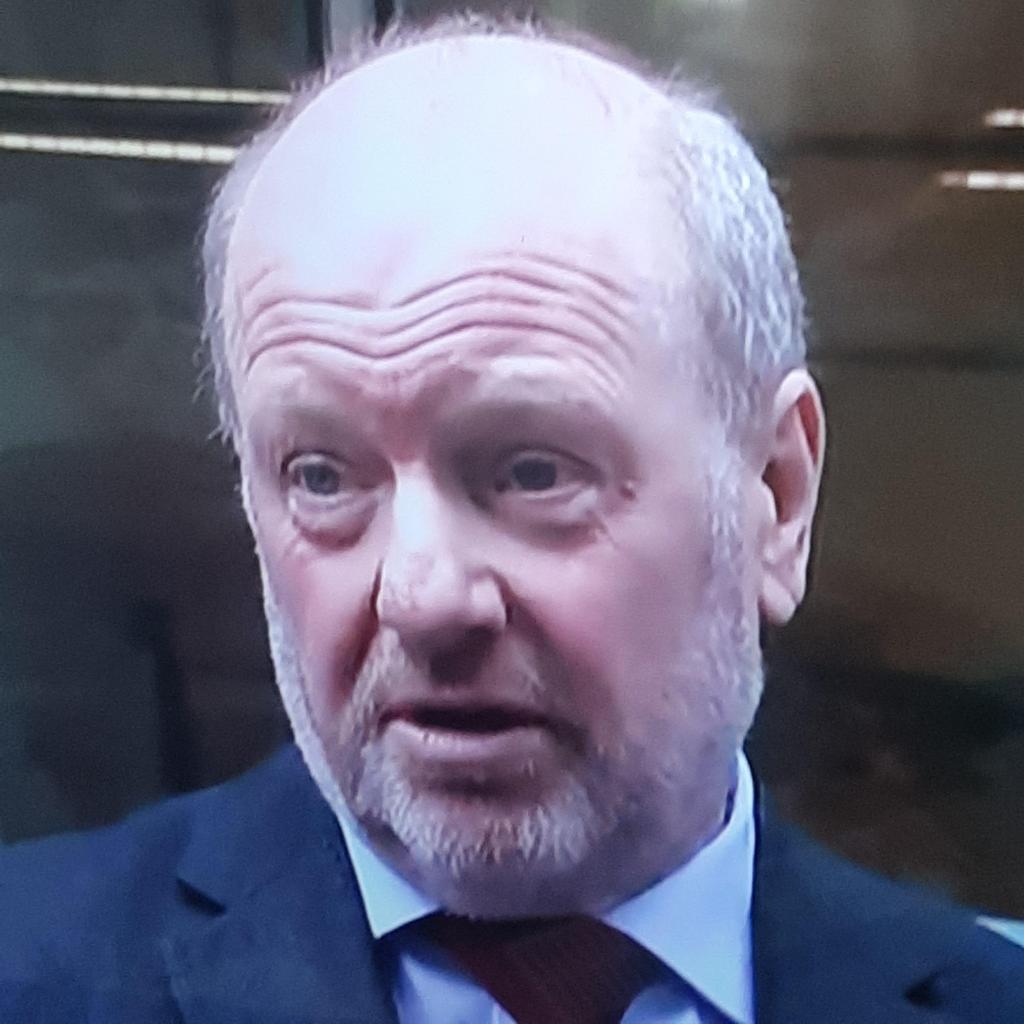By Tony Collins
“As matters stand, it is unlikely the JFSA [Justice for Subpostmasters Alliance] will engage with the Inquiry,” says Alan Bates who founded the Alliance.
Last Friday [11 June 2021) Wyn Williams, the respected retired judge who chairs a government inquiry into the post office Horizon system, made a new and earnest appeal.
Sir Wyn wants – and “expects” – many more sub-postmasters to participate now that the non-statutory inquiry set up in September last year is on a statutory footing. He said in a statement,
“I hope and expect that many more current and former sub-postmasters will be willing to participate in the work of the Inquiry following its conversion.
But he may still struggle to convince some sub-postmasters that there is any point in their participating, given the inquiry’s narrow terms of reference as set by the Post Office’s funding department, BEIS.
The terms do not mention consideration of compensating 555 sub-postmasters who defeated the Post Office in a group litigation that exposed the Post Office IT scandal.
It means the group has no clear reason to take part in the inquiry. Its members have not had returned to them the many tens, and sometimes hundreds of thousands of pounds, that they lost when the publicly-owned Post Office made them pay for unexplained shortfalls shown on its unreliable Horizon system. Horizon was built by Fujitsu at a cost, mostly funded by taxpayers, of about £1bn.
The Post Office IT scandal
Over 14 years, the courts convicted more than 700 sub-postmasters of financial crimes based on data derived from an unreliable branch accounts system, Horizon, whose material faults the Post Office and Fujitsu kept hidden. The Post Office continued to use data from Horizon as evidence to demand money from sub-postmasters. The scandal has affected more than 3,000 sub-postmasters across Britain.
When the Post Office ceased prosecutions based on Horizon in 2014, postal affairs ministers and government officials continued to hold that Horizon system was reliable. It took a High Court legal action by Alan Bates and 555 sub-postmasters to prove in 2019 that the system was not remotely robust.
Although Bates and his legal team won their case to establish that the Post Office was wrong to blame sub-postmasters for Horizon’s faults, their private legal funding ran out and Bates had to accept a government-approved settlement that left the 555 sub-postmasters with huge losses. Postal affairs minister Paul Scully has repeatedly refused to commit the government to giving back the money sub-postmasters lost in the scandal. He maintains that the litigation settlement was “full and final”.
Boycott?
Bates’ group boycotted the previous non-statutory which he saw as a potential whitewash. Although the inquiry is now on a statutory footing, the boycott may continue.
Bates said, “I see no signs yet of the JFSA’s concerns that the financial reparations will be included in the Inquiry. In fact they still seem to be specifically excluded. As matters stand, it is unlikely the JFSA will engage with the Inquiry.”
If the Alliance boycotts the inquiry, will the chairman force sub-postmasters to participate under powers he has under the Inquiries Act 2005?
But any forced participation of the scandal’s victims could convince critics of the inquiry that it was set up to serve the interests of government and its business department BEIS more than the public interest.
World first?
The inquiry exists as the government’s response to the biggest miscarriage of justice in British legal history. But the scandal’s significance may go wider still. It may be the first time any democratic nation worldwide has given criminal convictions in error to hundreds of innocent people on the basis of evidence derived from faulty technology.
The scandal- which campaigning peer Lord Arbuthnot describes as a national outrage – happened, in part, because of systemic flaws in the criminal justice system, systemic flaws in Whitehall’s scrutiny and oversight of public institutions and the Post Office’s unrestrained freedom to operate in the commercial world as Britain’s largest retail network without any effective shareholders and without, it seems, any institutional sense of right and wrong, only a mindset that what was right for the business was right for the country and employees.
But the Horizon enquiry’s terms of reference do not allow for an investigation into systemic failings in the criminal justice system or Whitehall’s systemic failings of oversight and scrutiny. Instead, Whitehall officials and the business department BEIS in particular have set up the inquiry to focus on failings at the Post Office alone and on faults in Horizon although these two areas have already been covered extensively in the group litigation. The judge in that litigation, Mr Justice Fraser, wrote more than 1,000 pages on failings at the Post Office in relation to Horizon and on the system’s technical faults. What then is the purpose of the Horizon enquiry other than to demonstrate a government response to the scandal?
One government source told journalist Nick Wallis in June last year that the civil service opposed any government review of Horizon. Wallis quoted the senior government source as saying, “the officials weren’t happy… They didn’t want a review, they didn’t want an inquiry or anything. They wanted it all to go away’.”
Implications of a JFSA boycott of the inquiry?
The scandal has been exposed only as a result of the work of Alan Bates and his JFSA members. Without their participation, the government inquiry may have little or no credibility. It is unlikely the Alliance’s forced participation would lend any credibility to the inquiry.
If the inquiry remains focused on the Post Office and Horizon alone rather than on compensation and systemic Whitehall failings, it could be seen by the government’s critics that it has responded ineffectually and without humanity to the scandal.
Are statutory inquiries independent of government?
A House of Lords committee that investigated public inquiries called for curbs on ministers’ powers to control important aspects of the inquiry.
When ministers, with their officials, set or change a statutory inquiry’s terms of reference, they need only discuss and consult with the chair but do not need his consent. It’s the same with the government’s appointment of an inquiry’s assessors and counsel.
A further weakness in the independence of statutory inquiries is that ministers can decide to restrict what information is published in the inquiry’s final report and can decide what documents or emails may be exempt from disclosure on the grounds of, say, the administration of justice.
The business department BEIS, although implicated in the Post Office IT scandal, has been able to control whether or not its failings of scrutiny and oversight are investigated by the Horizon inquiry – and it has chosen not to include its own failings in the terms of reference.
Organisations called to give evidence in statutory public inquiries can decline requests for information if they argue successfully that the information is not available or the request is unreasonable because of cost, time or difficulty in obtaining it. Their lawyers may also argue that they are not compelled to provide information covered by legal professional privilege.
Terms of reference
The House of Lords committee that investigated public inquiries recommended that victims of scandals ought to have a say in setting an inquiry’s terms of reference. The committee said,
“We recommend that interested parties, particularly victims and victims’ families, should be given an opportunity to make representations about the final terms of reference.”
But there has been no consultation with victims of the Post Office IT scandal over the Horizon inquiry’s terms of reference.
In any statutory inquiry, the terms of reference have a legal footing and usually cannot be circumvented. Indeed the Department for BEIS says the Horizon inquiry’s terms of reference form a “boundary”. This may mean that if compensation is discussed as an issue in the inquiry when there is no mention of it in the terms of reference, it would be unclear whether any such discussion could be of any practical consequence.
Government officials could decide to change Horizon inquiry’s terms of reference, in consultation with the chairman, to include consideration of compensation. But the government and Whitehall departments have no obligation to act on any public inquiry’s recommendations. Ministers can accept a recommendation but not act on it.
The National Audit Office investigated a wide range of public inquiries in 2018 and found it difficult in some cases to establish whether the chair’s recommendations had been acted on. The NAO also found that ministers have no duty to tell MPs whether they are going to act or not on a public inquiry’s recommendations.
Settlement “full and final”

Postal affairs minister Paul Scully has made no apology for failings in government and Whitehall’s oversight of the Post Office. He and the prime minister Boris Johnson have sought to distance government from the litigation and settlement.
Scully has said the government was not party to the settlement. He has also said the settlement was “full and final”. Similarly, Boris Johnson told Conservative MP Jonathan Lord last month that the government was “not party to the initial litigation nor the settlement that was agreed”.
But documents obtained by researcher Eleanor Shaikh under the Freedom of Information Act established that the government and business department BEIS were briefed on developments in the group litigation and chose not to intervene. The documents also show that the government and BEIS agreed the settlement.
Critics may wonder, therefore, whether Scully and Johnson are deepening the Horizon cover-up by incorrectly distancing government from key decisions that are being portrayed as having been made by the Post Office alone.
Comment
Not for the first time, government has set up a public inquiry that leads its critics to wonder whether it can serve any useful purpose other than demonstrate a dutiful response by ministers to public concerns.
In 2009 the then government set up a non-statutory inquiry into unexpectedly high deaths at Stafford Hospital. As with the Horizon inquiry, the government’s investigation into Mid Staffordshire NHS Foundation Trust covered old ground. Ministers wanted the Mid-staffs inquiry to report on deaths at the hospital and the lessons learned. But the Healthcare Commission had already investigated the trust’s failings – as Mr Justice Fraser has already reported on failings at the Post Office. What was the point of the Mid-staff inquiry investigating deaths again when the real cause of the scandal had been failings of scrutiny and oversight by regulatory agencies?
Campaigners for justice in the case of Mid-staffs, as in the Post Office IT scandal, worked hard for a statutory inquiry that was able to investigate systemic failings in scrutiny and oversight. In the case of Mid-Staffs, campaigners succeeded. The incoming coalition government in 2010 set up a new inquiry – this time a statutory one – whose specific purpose was to look at systemic failings. The then Heath Secretary Andrew Lansley said,
“So why another inquiry? We know only too well every harrowing detail of what happened at Mid Staffordshire and the failings of the trust, but we are still little closer to understanding how that was allowed to happen by the wider system.
“The families of those patients who suffered so dreadfully deserve to know, and so too does every NHS patient in this country. This was a failure of the trust first and foremost, but it was also a national failure of the regulatory and supervisory system …Why did it have to take a determined group of families to expose those failings and campaign tirelessly for answers?”
Lansley set up a full statutory inquiry into the failures of regulatory authorities. The inquiry did not have contrived and narrow terms of reference. In contrast, the Horizon inquiry has narrow terms of reference that do not include any investigation of systemic failings of oversight and scrutiny.
At the very least the inquiry into the Post Office IT scandal ought to be looking at how to compensate those who have lost hundreds of thousands of pounds at the hands of a state institution. These victims are the very people who exposed the scandal – and they had to sacrifice £46m of the settlement money in paying their costs. Of what benefit is it to them to have an inquiry that covers old ground by re-investigating failings at the Post Office and in the Horizon system?
When Johnson and Scully seek to distance government from the Horizon scandal, they make matters worse. All this does is remind victims that ministers and officials failed to act despite warnings time and again from MPs and sub-postmasters that an apparently unaccountable state institution was ruining the lives of people of integrity. Lord Arbuthnot has worked tirelessly since 2010 to make ministers aware of the extent of the scandal. He is joined by a strong Parliamentary contingent of MPs who are campaigning for justice alongside the JFSA.
Perhaps Scully and Johnson ought to be embarrassed to admit that government ministers and Whitehall officials let the Post Office conduct itself as it did. If they are embarrassed, it doesn’t show in the inquiry’s terms of reference.
It’s possible that Wyn Williams may do what Robert Francis QC, chairman of the Mid-Staffs inquiry did: recommend a new inquiry into failings of oversight and scrutiny. That would be welcome.
But as things stand, a scandal that is a world first merits something more than a self-serving government inquiry that protects Whitehall and ministers and leaves the Bates 555 with nothing.
The Great Post Office Scandal – Nick Wallis’ forthcoming book
Did government allow Post Office to sack forensic accountants to cover up Horizon scandal ? – Karl Flinders, Computer Weekly
The Therium Conundrum – Tim McCormack





Pingback: COVID crisis: what kind of inquiry do we need to learn the right lessons? – Changing World News
Pingback: what kind of inquiry do we need to learn the right lessons?
A rather tendentious piece. The authors don’t seem to appreciate the dangers of government interfering in a settlement agreed by both parties and declared – not by Ministers but by the court – as full and final. Saying that Minister Scilly “maintains” the settlement is full and final is a deliberately misleading and undermines the authors’ credibility and trustworthiness.
It is also nonsense to suggest that the judgment by Fraser J is detailed enough to make an enquiry into the PO and Fujitsu unnecessary. The judge can only comment on the evidence presented to him and the evidence was limited to what the claimants put forward, what was disclosed by the defendants and what was needed to prove PO culpability. There is plenty more for an enquiry to discover about the actions and omissions of individuals at the PO, Fujitsu and their advisers.
It is also misleading to suggest that an enquiry would be worthless without the participation of the JFSA. Their side of the story is already in the public domain. It is the other side of the story where light needs to be shone.
The Government was not a party to the litigation nor the settlement. That the PO reported to its shareholder that a settlement had been agreed and it was going to pay out a very large sum of money as a result, and the Government said OK, doesn’t change that. What “intervention” are the authors suggesting the Government should have made?
Of course there have been failings by the OGI and BEIS and these should be investigated. But the Williams Inquiry can do valuable work even without these aspects within its TOR.
Altogether too much of a proselytising piece to be accepted as a balanced commentary on this issue.
LikeLike
Hi Dougie,
I have a very strong feeling that Tony Collins, being a decent man offended by the persecution of the innocent and the deliberate inability of those responsible for the persecution of the innocent to provide a meaningful remedy preferring instead to protect themselves, is a tad perturbed.
In fact, I imagine that many decent people would be offended by this protracted scandal whereby the persecuted innocent continue to be disadvantaged and the third-raters responsible continue to flourish.
I think that could be the heart of the matter which, it appears, is of little interest to those who have different core values.
LikeLike
Thank you Zara.
LikeLike
Thank you, Tony.
Will Sir Wyn Williams and staff be paid for their work? Will it be more than the minimum wage of £8.91 per hour plus costs? Train and bus tickets, tea and a bun?
I also wonder if those, such as Paula Vennells, who were in positions of authority during the abuse period, have voluntarily contributed vast sums from their own coffers to their victims?
It seems to me that the innocent, abused and suffering sub-postmasters will be further insulted by participating in an inquiry that will continue to treat them like insignificant extras in a drama in which the ‘stars’ attract generous salaries and good reviews.
I get the impression that those who set up inquiries, i.e. government and their paid officials, decide on the outcome that suits them and then back engineer arrangements to guarantee that result.
Until we see substantial evidence that the inquiries we fund are free from self-interest, I think we might as well avoid the theatre and allow the sub-postmasters and similar innocent victims to try and enjoy what’s left of their ruined lives without insulting them further.
LikeLiked by 1 person